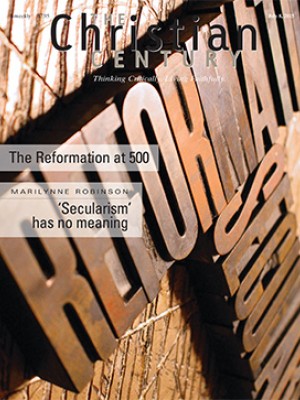Communion thirst

When Jesus told his disciples that unless they became like children they would not qualify for entrance to the kingdom, he didn’t mean childishness. They had just asked a very adult question, a typically human question about status and privilege: “Who is the greatest in the kingdom?” His response, “Become like children,” has to do with the human propensity to make simple matters unnecessarily complex, to pile guidelines, rules, and hoary traditions on top of simple truths until they’re no longer visible or recognizable.
I was delivering the homily during mass in the Roman Catholic church where my daughter-in-law and three granddaughters are members and my son attends and participates. The girls go to the church’s parochial school. My wife and I attend for Christmas pageants, school programs, and first communions. The parish priest and I have become friends, and he often jokes about hiring me to be his assistant. On the day I preached, several pews were filled with other family members, Presbyterians all. Two granddaughters served as altar girls and rang the bells during the Eucharist at the moment of transubstantiation, which was a personal high point for them and for all the Presbyterians. When Lilly finished she looked out at her family and executed a perfect fist pump, just as she does when she scores a soccer goal. I think Jesus would have liked that.
Read our latest issue or browse back issues.
Then came the moment Protestants dread. Should we go forward to receive the elements? I always have the same internal discussion. Should I show my respect for my Catholic neighbors’ traditions and abstain? Should I stay seated because I don’t ordinarily go to dinners to which I’ve not been invited? Or should I participate because I believe that it is Jesus’ table and no one should be excluded?
I looked to see what my family would do. Some remained seated. But my granddaughter Rachel, who has Down syndrome, and who is a member in good standing in her Presbyterian church and regularly receives the sacrament, didn’t hesitate. She hasn’t heard about the 500 years of conflict over “the real presence.” She stood and stepped toward the aisle, followed by her sister, mother, cousin, and grandmother (my wife).
I got up and fell in line behind Rachel. When she received the wafer—not the Presbyterian Wonder Bread cube—she had a little difficulty, so she took a large gulp from the cup that was lifted to her lips. There were two communion stations, and Rachel walked to the second and had another drink. My heart soared. Once again Rachel had gone to the heart of the matter, skimming over 20 centuries of ecclesiastical complexity to join the gathered friends of Jesus at his table.
In this issue Sarah Hinlicky Wilson and Thomas Albert Howard remind us that the 500th anniversary of the Reformation is coming soon, and they offer valuable suggestions for marking the occasion ("Repent and celebrate"). Recognize, they urge, that hostility and recrimination shaped confessional theology on both sides, so “disentangle the hostility.” Examine how politics and personalities led to explosive results. The authors recall that Pope John Paul II wisely counseled that ecumenism must be based on forgiveness and reconciliation.
As I watched Father John leading the liturgy of the mass, I was impressed by how the mass is part of my heritage. I’m a thoroughgoing Presbyterian, but the catholicity of the church is a part of my theological and ecclesiastical tradition and my personal faith. As we prayed for the church that day, I prayed for the church’s unity, for the day when all are welcome at the Lord’s table, the day when the terms Catholic and Protestant are no longer necessary or relevant. The most appropriate way to celebrate what happened 500 years ago is to find a way to unite what has been separate for far too long.






